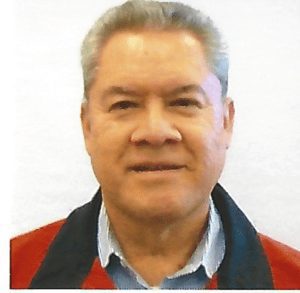A Teacher’s Perspective on Contracts and Collective Bargaining
By Cate Simmers, LEV Board Member
 As conversations around the McCleary decision continue to spur discussion around the state, I’ve been prompted to think about my teaching career over the past 15 years and the changes that I have seen during this time. Yes, there have been significant changes (the implementation and implications of the Common Core State Standards being one of the biggest), but many programs and structures remain the same. As our society changes and as our students’ needs change, I wonder if it’s time to consider policy changes that affect these structures? Following are some thoughts around two education issues that I believe should be viewed through a new lens.
As conversations around the McCleary decision continue to spur discussion around the state, I’ve been prompted to think about my teaching career over the past 15 years and the changes that I have seen during this time. Yes, there have been significant changes (the implementation and implications of the Common Core State Standards being one of the biggest), but many programs and structures remain the same. As our society changes and as our students’ needs change, I wonder if it’s time to consider policy changes that affect these structures? Following are some thoughts around two education issues that I believe should be viewed through a new lens.
The Teacher’s Contract
Currently, teachers are paid by the state for 180 days of work, the 180 days of contact time with students. Different districts around the state use creative ways to add days to this contract or to use regular early release or late arrival schedules to allow time for teachers to participate in collaborative work or professional development opportunities. These different approaches create an inequity between districts and the supports that are offered to their teaching staff. What if, instead, the contract changed to a year-round contract?
A year- round contract is not to be confused with a year-round school year. In this proposal, the school year would remain the same for students, but teachers would be asked to extend the number of contracted work days. Extending the contract an extra week or two after the school year ends and/or before the school year begins would give the opportunity for teachers to receive professional development and to work with their colleagues to plan high-quality, rigorous instruction as demanded by Common Core.
Currently, teachers often take time off from work or take classes once the workday is done when receiving professional development. Additionally, it is a teacher’s tradition to work late into the evening and on weekends and breaks when collaborating with their colleagues and planning for their instruction. Instead, having dedicated time in the summer to complete these activities would allow for fresh, energetic participation. It would also give the opportunity for teachers around the state to gather together to learn from and work with one another. Lastly, it would bring more equity to our profession and compensate teachers for the work that is required outside of the classroom.
Salary Bargaining at the State Level
Teacher salaries in Washington state are provided by two funding sources. The majority of a teacher’s salary comes from the state and is then supplemented at the district level. This is called TRI (time, responsibility and incentive) pay and the amount of compensation varies from district to district. Teachers receive different amounts in TRI compensation based on what is bargained at the district level and districts are increasingly using their levy dollars to fund teacher salaries. In my district, over 25% of teacher salary comes from TRI pay. There are two relevant issues at play in this scenario.
First, teachers receive inequitable compensation depending on the district in which they work. Many of my colleagues have left one district for another simply because the pay was better. Higher paying districts tend to attract higher quality teachers, which can lead to an inequity in teaching staff from district to district.
Second, if salary bargaining was completed at the state level, individual districts would be able to spend their bargaining time working on issues that affect their population’s individual needs. Instead of designating a large percentage of their budget toward teacher salaries, districts could use this money in other ways. I think of my current district and the lack of staff and resources that we are able to fund. Examples include counselors, librarians, and intervention specialists as well as curriculum resources. District bargaining could potentially focus on needs such as these instead of teacher compensation.
As Washington state grapples with the definition of basic education and how to allot funds to pay for it, we are beginning to look at education policy through new eyes. As a teacher, I welcome this timely opportunity for us to examine traditional education structures as well.
#BeyondBasic
 We begin our discussion of redefining basic education with the most important part of our education system: our teachers. Research consistently shows that teachers have the
We begin our discussion of redefining basic education with the most important part of our education system: our teachers. Research consistently shows that teachers have the 







